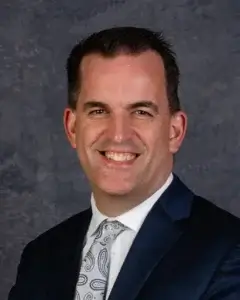Why did God save you? This question lies at the heart of every Christian’s journey. In a recent sermon based on Acts 26:12-31, Pastor Léveillé unpacked the divine purpose behind our salvation. Drawing from the Apostle Paul’s testimony before King Agrippa, the message reveals that salvation is not just about securing a place in heaven but about fulfilling a mission to lead others to Christ. This article explores three key points from the sermon: the reason you are here as a Christian, how the Lord works through us, and the call to make sharing the gospel our mission.
The Reason You Are Here as a Christian Is to Lead Others to Jesus (Acts 26:16)
In Acts 26:16, the Lord speaks to Saul (later Paul) on the road to Damascus, saying, “But rise, and stand upon thy feet: for I have appeared unto thee for this purpose, to make thee a minister and a witness both of these things which thou hast seen, and of those things in the which I will appear unto thee” (King James Version). This verse clarifies that God saves us for a purpose beyond personal salvation. As Christians, we are called to be ministers and witnesses, sharing the gospel to bring others to Christ. Pastor Léveillé emphasized that God’s intent is not merely to add our names to the Lamb’s Book of Life but to use us as ambassadors (2 Corinthians 5:20) to reconcile others to Him. Whether through sharing the gospel with a neighbour, distributing tracts, or supporting missions, our purpose is to lead others to Jesus. Without this focus, we risk missing the “why” of our salvation, leaving us unfulfilled as believers.
The Lord Is Doing the Work Through Us (Acts 26:17-18)
Acts 26:17-18 reveals the divine power behind our mission: “Delivering thee from the people, and from the Gentiles, unto whom now I send thee, To open their eyes, and to turn them from darkness to light, and from the power of Satan unto God, that they may receive forgiveness of sins, and inheritance among them which are sanctified by faith that is in me” (King James Version). Pastor Léveillé highlighted that while we are called to share the gospel, only God can transform hearts. We cannot open blinded eyes, break Satan’s hold, or grant forgiveness; these are divine acts. Our role is to be faithful witnesses, trusting the Holy Spirit to work through us. The sermon referenced 1 Thessalonians 1:5, which states, “For our gospel came not unto you in word only, but also in power, and in the Holy Ghost, and in much assurance” (King James Version). To be effective, we must maintain a clean heart, free from unconfessed sin, allowing God’s power to flow through us. This dependence on God ensures that our efforts bear fruit beyond human capability.
Make It Your Mission (Acts 26:20)
Paul’s response to his divine calling is found in Acts 26:20: “But shewed first unto them of Damascus, and at Jerusalem, and throughout all the coasts of Judaea, and then to the Gentiles, that they should repent and turn to God, and do works meet for repentance” (King James Version). Paul was not disobedient to the heavenly vision but made it his mission to share the gospel wherever he went. Pastor Léveillé challenged believers to adopt this same resolve. The Great Commission is not optional; it is a command to be obeyed (Hudson Taylor). Whether through local outreaches, missions trips, or personal conversations, every Christian is called to actively share the gospel. The sermon underscored the importance of seizing opportunities, such as church-organized events or casual encounters, to fulfill this purpose. By living as clean vessels and embracing our role as ambassadors, we can see God work powerfully through us to reach the lost.
Conclusion
The message from Acts 26:12-31 reminds us that salvation carries a profound purpose: to lead others to Christ. God equips us for this mission, working through us to accomplish what we could never do alone. Yet, it requires our obedience and commitment to make sharing the gospel our mission. As Pastor Léveillé urged, let us keep our hearts clean, seize every opportunity, and trust God to transform lives through our testimony. May we live as faithful ambassadors, fulfilling the “why” of our salvation until the trumpet sounds.












